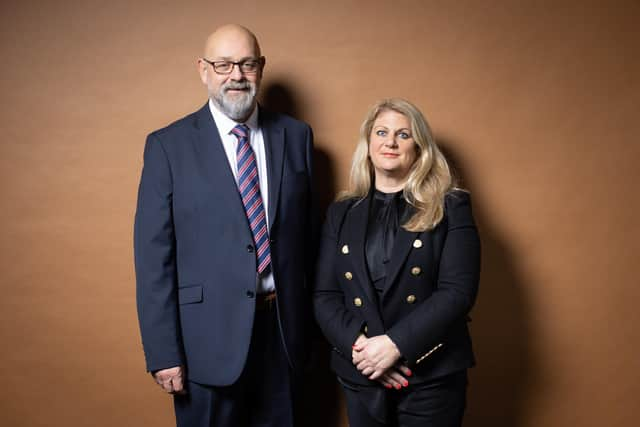This is what you need to know about the new No Blame divorce rules in Lancashire
and live on Freeview channel 276
The new reforms will allow couples to end their marriage jointly, without pointing the finger of blame.
They will no longer be able to make allegations about the conduct of a spouse, instead they can make a statement of irretrievable breakdown, either individually or together.
Advertisement
Hide AdAdvertisement
Hide AdThere will be a new minimum period of 20 weeks, for “meaningful” reflection, between starting proceedings and applying for a conditional order.


It will no longer be possible to contest a divorce, except on limited grounds.
Until now, people seeking divorce have had to give evidence of at least one of five facts to establish the irretrievable breakdown of the marriage.
Three of these involve “fault” – “unreasonable behaviour”, adultery and desertion. The final two meant two years separation if the other spouse consented to the divorce, and five years separation if they did not.
Advertisement
Hide AdAdvertisement
Hide AdLancashire’s Vincents Solicitors is gearing up for an expected spike in divorce enquiries.


They said the biggest change for almost 50 years, the Divorce, Dissolution and Separation Act 2020 aims to make divorce quicker and easier, to reduce the amount of animosity between separating couples, and the harm it can cause to children.
But while April 6 was expected to be the busiest day of the year for new divorces being filed, there has been a flurry of activity in the run up as some people wanted to start their proceedings under the existing rules before the final day.
Vincents has more than doubled its divorce team over the last year making the department well placed to deal with the uplift. Highly experienced solicitor Angela Garvey has joined department head Mark Mosley at the Preston office while noted divorce lawyer Mary Lowe has brought her four strong team to launch the newly rebranded partnership Mary E Lowe at Vincents Solicitors in Lytham.
Vincents’ Mary Lowe said: “This is a huge moment for families and a win for common sense. The first major change in almost 50 years designed to help couples to divorce in a more straightforward way, without the system forcing conflict upon them, is something we and our professional body Resolution have been calling for to help reduce the trauma of divorce.
“Sadly we’re seeing an increase in people separating at the moment, chiefly because of the pressures of lockdown on relationships. After making enquiries with us about the changes, many people are waiting until after April 6 to start proceedings and make the most of the new process although we did have a surprising flurry of activity from people wanting to proceed under the existing arrangements before the March 31 deadline.”
It is expected the new process, which is an amendment to the Matrimonial Causes Act 1973, will take around six months to finalise. There will be a minimum of 20 weeks from the presentation of the petition to the application of a conditional order (previously the Decree Nisi) then a further six weeks until applying for the final order (previously the Decree Absolute).
Advertisement
Hide AdAdvertisement
Hide Ad“While the basic costs will remain the same, the timeframe is expected to be slightly shorter,” said director Mark Mosley, head of Vincents’ Family Law department.